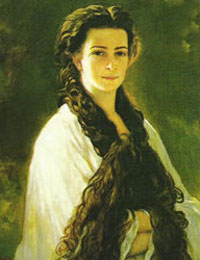 You may have heard that the word “geek” was originally used to describe circus freaks who would entertain the crowd by biting the heads off of live fish (or some other bizarre feat).
You may have heard that the word “geek” was originally used to describe circus freaks who would entertain the crowd by biting the heads off of live fish (or some other bizarre feat).
While it’s true that circus freaks were referred to as “geeks” in the early 20th century, it’s not true that this is the original usage of the term. The word actually dates back to 1515 when it appears, according to the Oxford English Dictionary, in Barclay’s Egloges: “He is a foole, a sotte, and a geke also, which choseth the worst [way] and most of jeopardie.”
What’s interesting, however, is that the OED lists this citation under the word “geck”. The word is spelled as “gecke” in Shakespeare’s Twelfth Night and apparently that became the “accepted” spelling of the word by most authorities. (Although the OED also cites an 1876 glossary which defined a “gawk, geek, gowk, or gowky” as “a person uncultivated; a dupe” — so clearly the “geek” usage did not actually disappear.)
Shakespearean authority for a word can be weighty, but Twelfth Night isn’t the only place Shakespeare used the word. It also appears in Cymbeline, and there he spells it “geeke”:
Why did you suffer Iachimo, slight thing of Italy,
To taint his nobler hart & brain with needless jealousy
And to become the geeke and scorne o’th’others vilany?
So if the earliest known occurrence of the word is spelled “geke”, why does the OED list “geck” as the original form of the word? I don’t know. But what I find truly odd is that virtually all modern editions of Cymbeline emend the text to read “geck” instead of “geek”.
The ASR script, of course, doesn’t do that. So come see Cymbeline tonight, where we’ll proudly be wearing our geekery on our sleeves.
Originally posted on October 26th, 2010.












You should submit this to the OED, Justin—perhaps a correction/update is in order?
Allan.
So, would that make being a Shakespeare geek somewhat recursive? 😉